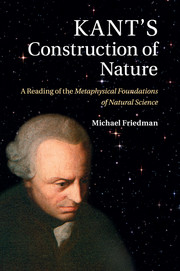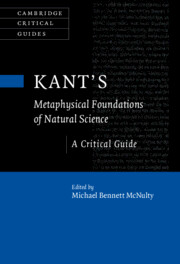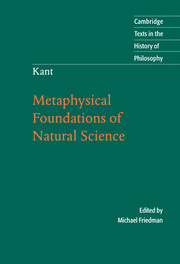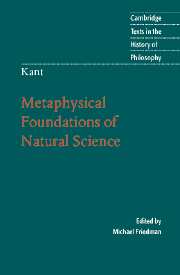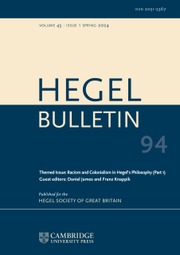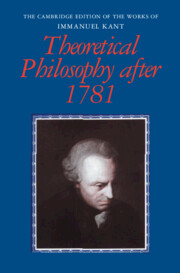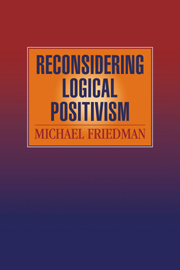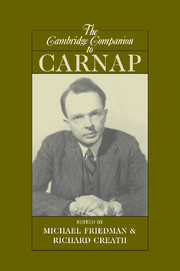Kant's Construction of Nature
Kant's Metaphysical Foundations of Natural Science is one of the most difficult but also most important of Kant's works. Published in 1786 between the first (1781) and second (1787) editions of the Critique of Pure Reason, the Metaphysical Foundations occupies a central place in the development of Kant's philosophy, but has so far attracted relatively little attention compared with other works of Kant's critical period. Michael Friedman's book develops a new and complete reading of this work and reconstructs Kant's main argument clearly and in great detail, explaining its relationship to both Newton's Principia and eighteenth-century scientific thinkers such as Euler and Lambert. By situating Kant's text relative to his pre-critical writings on metaphysics and natural philosophy and, in particular, to the changes Kant made in the second edition of the Critique, Friedman articulates a radically new perspective on the meaning and development of the critical philosophy as a whole.
- Develops a new and complete reading of the Metaphysical Foundations of Natural Science
- Explains the significance and centrality of this text for Kant's philosophy as a whole and, in particular, for the Critique of Pure Reason
- Sheds new light on Kant's relationship to eighteenth-century science in the wake of Newton's achievement
Reviews & endorsements
'A profound contribution to the debate about what science can teach us about the world.' The Times Literary Supplement
Product details
January 2013Adobe eBook Reader
9781139602761
0 pages
0kg
4 b/w illus.
This ISBN is for an eBook version which is distributed on our behalf by a third party.
Table of Contents
- Preface and acknowledgements
- Introduction: the place of the Metaphysical Foundations in the critical system
- 1. Phoronomy
- 2. Dynamics
- 3. Mechanics
- 4. Phenomenology
- Conclusion: the complementary perspectives of the Metaphysical Foundations and the first Critique.

